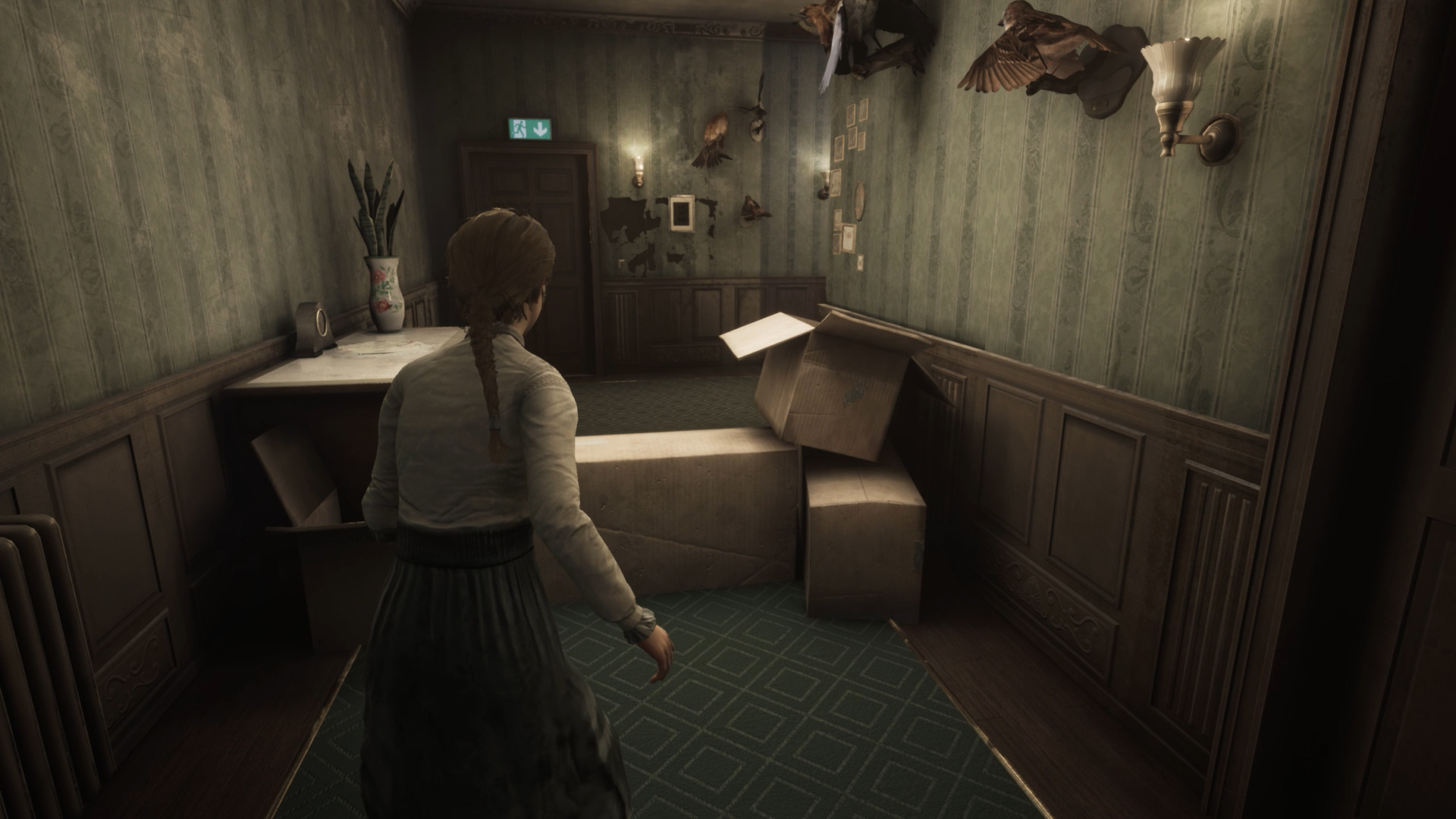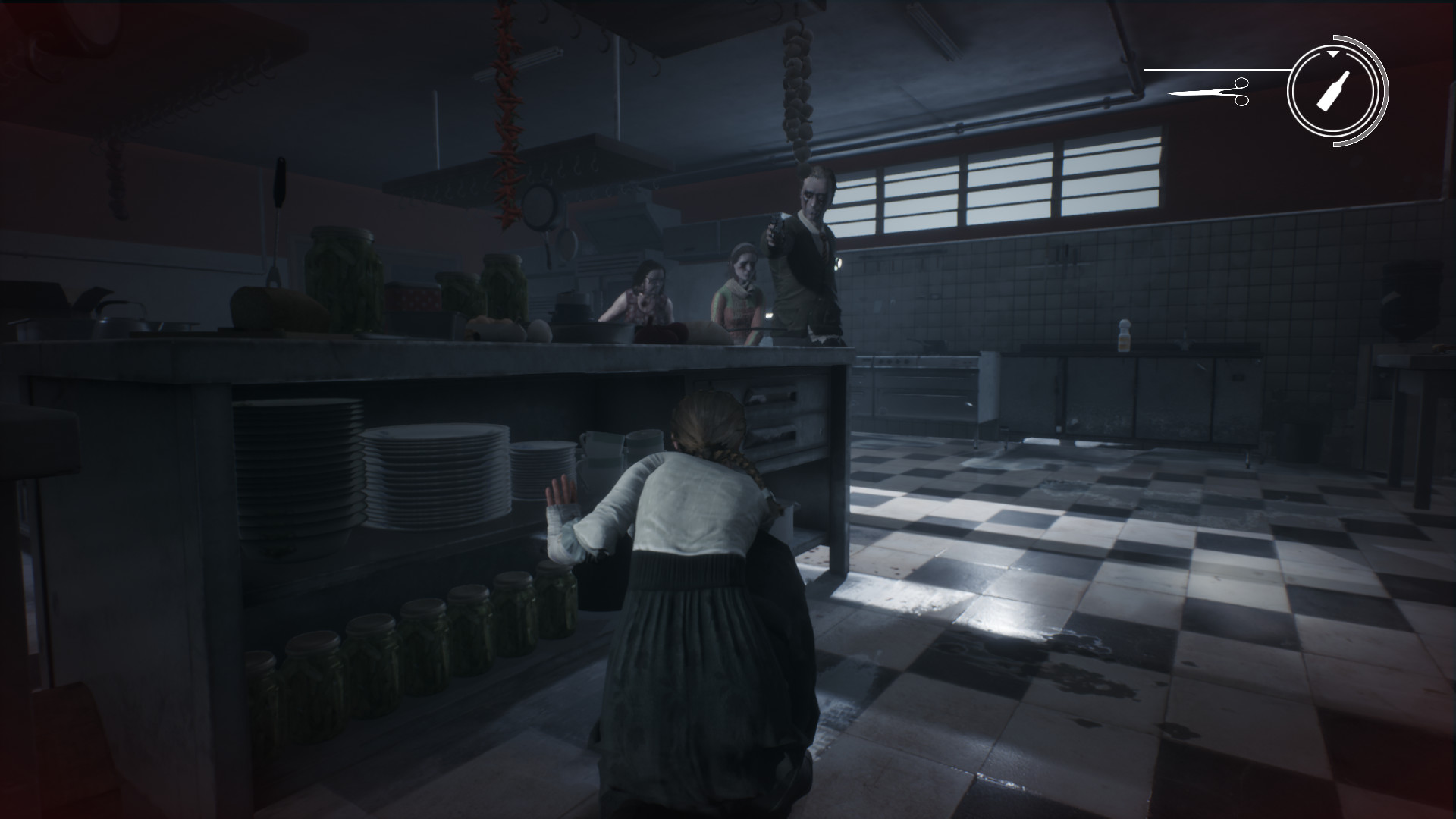Remothered: Broken Porcelain Review
“Okay, wanna play tough?! I’ll show you, bitch!” muttered the young Jennifer about her pale-faced tormentor Andrea, her voice trembling with barely contained rage. The background score to this climactic scene wails and shrieks with all the operatic dread of a horror chase scene. The problem, however, is that this dramatics will soon give way to frustration and even unintended humour, with the bugs of Remothered: Broken Porcelain draining all the frights from what was supposed to be a survival horror experience.
Here’s what happened next: as the plucky heroine Jennifer, you’re supposed to “defeat Andrea” as directed by the objective. Jennifer has lost her shit, finally worn out by Andrea’s incessant badgering as she pops up, like a bothersome ghoul, at inopportune times to yodel tonelessly and chase after you in meandering stretches of corridors. Like most horror game heroes, Jennifer isn’t a fighter, and confrontational battles will quickly get you killed. You see, when captured by Andrea, you’ll be treated to a gruesome cinematic of Jennifer being impaled on the head with Andrea’s favourite pair of sewing scissors—a consequence you would ideally want to avoid. The trick, then, is to creep up behind Andrea and stab her, viciously, till she bleeds out in her own sloshy pool of guts.
But one stab does not do the trick.
Neither do two.
Nor three.
It’s four times, folks.
What makes this so tedious is that this entire charade is a painful cycle of crouching, hiding and running (screaming is entirely optional, but not at all warranted). And with Andrea’s uncanny and demonic ability to see through furniture and walls, this makes hiding from her infinitely more challenging.
Bugs aplenty

Not all encounters in Broken Porcelain will descend into all-out combat. Still, in unavoidable conflicts such as this nightmarish scenario with Andrea, Broken Porcelain does try to offer a small way out by offering some reprieve in the form of mini-games. If you also have a weapon, such as a screwdriver or a knife, you can attempt to wiggle out of your skirmish against these enemies—what Broken Porcelain will refer to as “stalkers”—and avoid dying, such as clicking on your mouse buttons frantically when caught in the ironclad grip of these fiends. Alternatively, if you’re on the verge of being discovered when taking refuge in one of the game’s many hiding spots, you can try to avoid detection in a different mini-game, in which you had to keep your mouse pointer at the dead centre of a circle. But these little gimmicks can be difficult to grasp, and most times you’ll find yourself failing, and eventually being clobbered to death, or dragged out into the light by your pursuers. What’s strange, too, is that these failures vary in severity; while being caught usually mean certain death, getting wrestled out of your hiding spot is of surprisingly little consequence, since you’ll just need to ease yourself into yet another joyless cycle of running, crouching and hiding again for the next few minutes from the stalkers. Most of such hunts are quite cyclical, like crunching numbers in a spreadsheet. Sorry, accountant friends.
Adding to the tedium of these confrontations are Jennifer’s hopelessly sluggish and delayed reaction time, and the odd bugs that seem to cement your feet on the spot—a situation that’s obviously not ideal when you’re trying to escape from axe-wielding murderers. This can be seen when Jennifer gets attacked by them. While she can take some damage, she has the tendency to crumble onto the ground before getting up again, upon being bludgeoned by the stalkers. However, her recovery is so mind-numbingly slow that this only gives them more time to ready their subsequent attack, as they close in for a second swing. This is made worse when Jennifer performs her theatrical collapse at a tight corner, rendering any form of escape or retaliation nearly impossible, when her pursuers surround her. Then there are instances when she gets stuck behind furniture, while her enemies trip over themselves—at times performing an odd little jig while they’re at it—as they try to reach you. Sometimes they can’t, despite their best efforts, and that means you won’t even be granted the sweet release of crimson death, forcing you to reload from an earlier save.
Bewildering tale

You may think that patches will solve these issues, but even these updates won’t redeem Broken Porcelain from its similarly fractured pacing. The game serves as both a sequel and prequel to Remothered: Tormented Fathers, with its story ricocheting frantically between several perspectives and periods—from the young schoolgirl Jennifer, to the much older Reed, the protagonist of the first game in the Remothered series. As the second part of this horror trilogy, Broken Porcelain is almost incomprehensible without prior knowledge of the first. To put it simply, Jennifer is the adopted daughter of the first game’s big bad Richard Felton, and who was rumoured to have been killed by her own father. The tale is heavily centred around illegal drug testings and overdosing, with Broken Porcelain frequently referencing the lamentable plight of a convent of nuns, who were being experimented on, and then killed in an arson attack.
There are vague attempts to conjure some narrative drama about the corruptive privilege of wealthy men, and the endless violation they have wrought upon women and gender minorities through their rapacious appetite for power. Much like the beginning of this piece, in which Jennifer had crudely referred to Andrea, the ashen-faced phantom of a middle-aged Christian lady, as a “bitch”, many characters in Broken Porcelain have similarly reduced its women to thoughtless slurs. In another cutscene, a man cruelly sneered at Jennifer about her mother, spitting “It was never enough for that fucking whore!” into her face with sociopathic glee, as Andrea, the frustratingly and perennially unkillable human wraith, cackles maniacally alongside him. Broken Porcelain appears to grant some semblance of power back to its women in the end when the only ones left standing in the aftermath of this mess of a game are the very women its men have sought to brutalise. But whatever hints of such deeper themes are ultimately hollow, with the game failing to make any meaningful statement or closure about the poisonous stench of misogyny. And with its numerous glitches and flaws, Broken Porcelain instead becomes a superfluity of horror game tropes; its cheap jump scares, laboured stealth encounters, and confusing plot now an unfortunate fixture of what used to be a promising survival horror series.
[Reviewed on PC]

